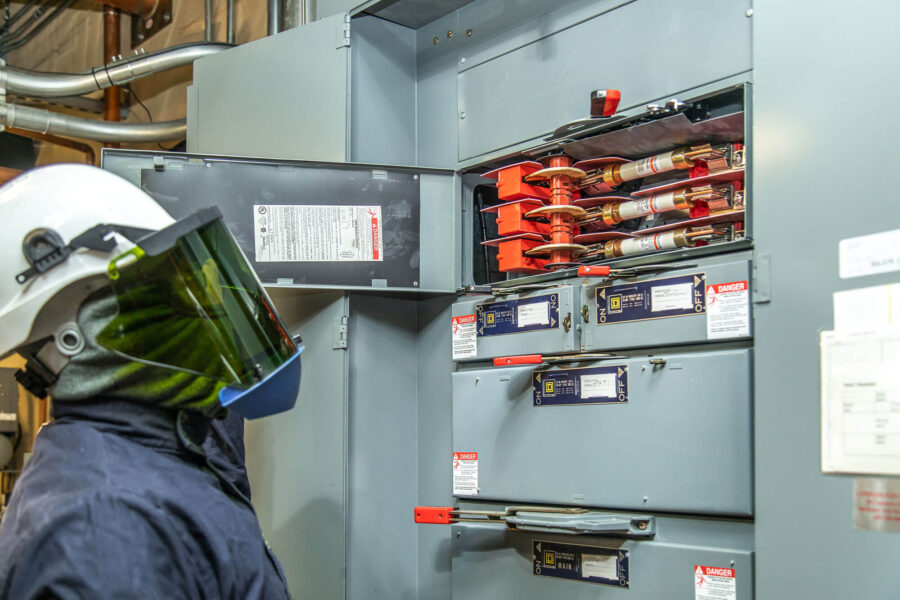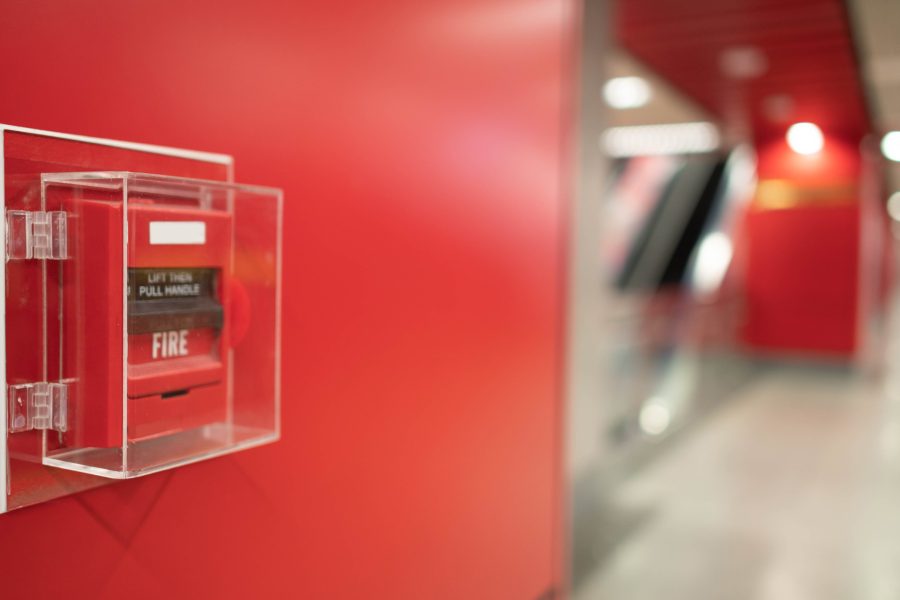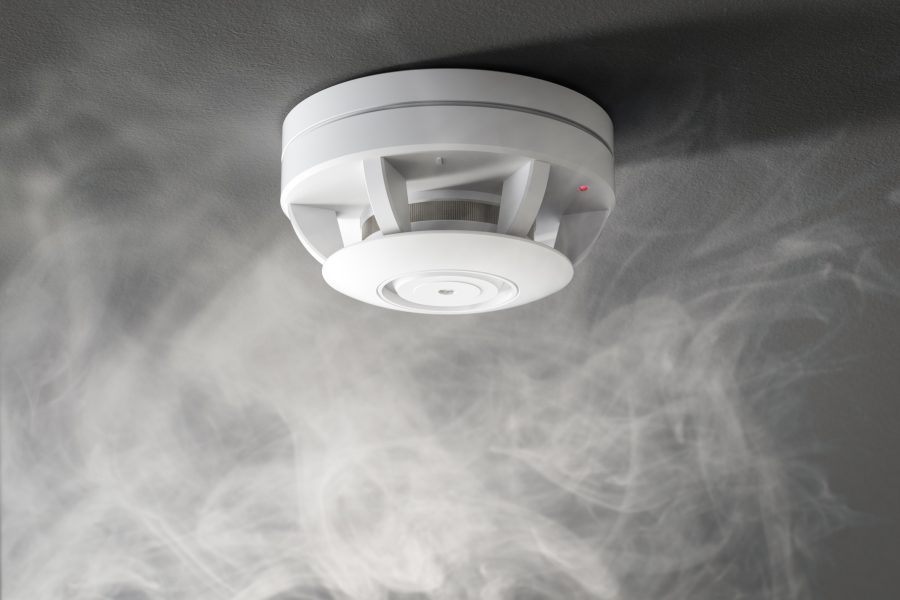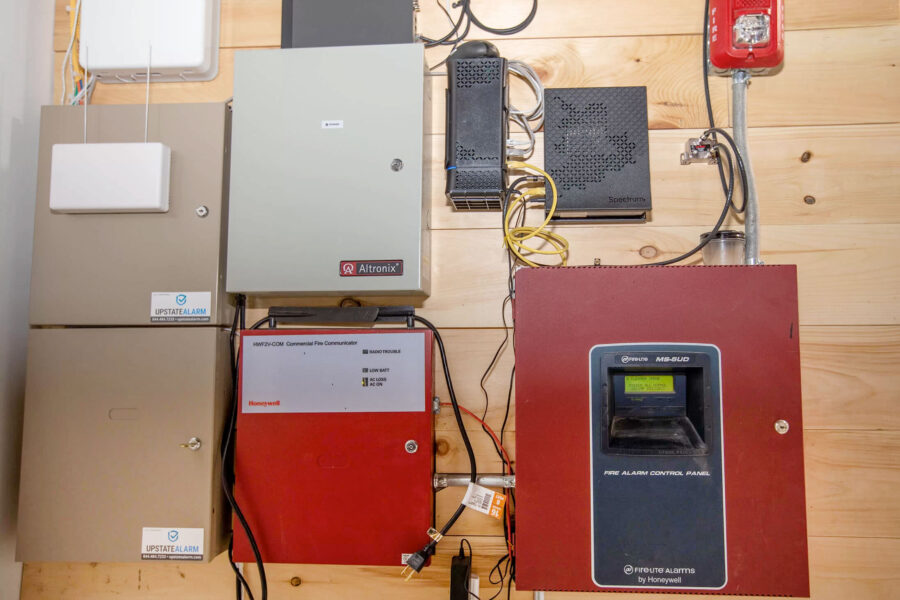The Definitive Guide to Commercial and Industrial Electrical Installation and Maintenance
Commercial and industrial electrical maintenance is crucial to keeping your electrical system up and running safely and smoothly. Electrical installation is the process of installing electrical wiring, fixtures, equipment, or systems in a facility. Once an electrical system is installed, it’s important to have a regular maintenance routine to address any threats before they take a toll on your operation.
In this definitive guide, we’ll describe everything you need to know about commercial and industrial electrical maintenance, from what it is to what it includes to how often you need it. We’ll also outline the benefits of electrical installation maintenance so that you can make the best decision for your business.

What is electrical maintenance?
Commercial and industrial electrical maintenance is the process of regularly inspecting, testing, cleaning, and repairing electrical systems and components to ensure they are safe and functioning properly. Electrical maintenance helps to prevent electrical hazards, extend the lifespan of electrical equipment, and improve the overall efficiency of the system.
What does electrical maintenance include?
There are many different electrical maintenance techniques, but some of the most common include:
- Predictive and proactive care: This involves using data and analytics to identify potential electrical problems before they occur.
- Preventive maintenance: This is a regularly scheduled maintenance program that helps to prevent electrical issues from arising.
- Corrective maintenance: This is carried out when an electrical issue has already occurred and needs to be fixed.
- Inspecting electrical components and systems for damage or wear: This helps to identify any potential electrical hazards.
- Testing electrical components and systems: This helps to ensure that they are functioning properly.
- Cleaning electrical components and systems: This helps to improve the overall efficiency of the system.
- Repairing electrical components and systems: This is carried out when an electrical issue has already occurred and needs to be fixed.
Which components does an electrician check?
An electrician will typically check the following electrical components and systems:
- Wiring: This includes checking for loose connections, damaged insulation, or exposed wires.
- Lighting Fixtures: This includes checking for cracked lenses, loose screws, or burned-out bulbs.
- Equipment: This includes checking for damaged cords, loose plugs, or faulty electrical outlets.
- Systems: This includes checking the electrical panel, circuit breakers, and fuses.
- Switches: This includes checking for loose screws, damaged plates, or worn-out switch covers.
- Smoke detectors: This includes checking the batteries and testing the alarms.
- Electrical outlets: This includes checking for loose plugs, damaged outlets, or electrical shorts.
- Generators: This includes checking the oil level, air filter, and spark plugs.
- UPS (uninterruptible power supply) system: This includes checking the batteries and testing the alarms.
- HVAC system: This includes checking the thermostat, filters, and coils.
Electrical safety maintenance
In addition to regularly inspecting and testing electrical components and systems, electrical safety maintenance is also important. This includes ensuring that all electrical equipment is properly grounded, that electrical cords are not damaged or frayed, and that electrical outlets are not overloaded. The electrician also checks for any electrical hazards that could pose a danger to employees or customers.
What are some electrical hazards and dangers from improper maintenance?
Electrical hazards and dangers from improper electrical maintenance can include:
- Fires
- Electrical shocks
- Electrocution
- Explosions
- Injuries
- Death
These hazards can occur if electrical wires and cords are damaged, frayed or not properly insulated, or if electrical outlets are overloaded and electrical equipment is not properly grounded.
How often does a business need electrical maintenance?
The frequency of commercial and industrial electrical maintenance depends on the type of business, the age of the electrical system, the size of the facility, the complexity of the electrical system and the number of electrical hazards present. However, most businesses should have electrical maintenance performed at least once a year. They should also have an electrical maintenance program in place to ensure the safety of their employees and customers.
What are the benefits of electrical maintenance?
The benefits of electrical maintenance include:
- Improved safety: By regularly inspecting and testing electrical components and systems, businesses can identify potential electrical hazards and address them before they cause accidents or injuries.
- Reduced downtime: By addressing electrical issues before they cause problems, businesses can avoid disruptions to their operations.
- Improved efficiency: Regular electrical maintenance can help to improve the overall efficiency of electrical systems.
- Reduced risk of electrical fires: Businesses can identify potential electrical fires and address them before they cause damage with regular electrical maintenance.
- Reduced risk of electrical shocks, electrocution and explosions: By regularly inspecting and testing electrical components and systems, businesses can identify potential electrical hazards and address them before they cause accidents or injuries.
- Improved electrical system efficiency: Regular electrical maintenance can help businesses identify potential electrical issues that could cause inefficiencies in the electrical system.
- Improved equipment lifespan: Businesses can identify potential electrical issues that could cause damage to electrical equipment by regularly testing and inspecting electrical components and systems.
Electrical safety maintenance tips
There are a few electrical safety maintenance tips that every business should follow:
- Inspect electrical equipment and components regularly.
- Test electrical equipment and systems regularly.
- Clean electrical equipment and systems regularly.
- Repair or replace electrical components or systems that are not functioning properly.
- Do not use electrical equipment or systems that are damaged or defective.
What is an electrical contractor?
An electrical contractor is a professional who installs, maintains, and repairs electrical systems. Electrical contractors are licensed and insured to work with electrical equipment and systems. They have the training and experience to safely work with electrical components and systems.
Some of the skills required for success as a certified commercial electrician include:
- The ability to read and interpret electrical plans and blueprints.
- The ability to safely install, maintain, and repair electrical systems.
- The ability to troubleshoot electrical problems.
- The ability to use electrical testing equipment.
- The ability to work in confined spaces.
Learn more about the electrical contracting services we provide by following this link:
https://douglaselectric.us/commercial-electrical-contractor/
What to look for in an electrical installation and maintenance contractor
Here is what to look for in an electrical installation and maintenance contractor:
- Choose a reputable and experienced company.
- The contractor should be licensed and insured.
- The contractor should have experience working in commercial and industrial settings.
- The contractor should be able to provide a list of references from satisfied customers.
- The contractor should be able to provide a written estimate for the electrical installation and maintenance services they will provide. The estimate should include the cost of labor, materials, permits and any other associated costs.
- The contractor should be able to answer any questions that you have about electrical installation and maintenance.
- The contractor should be able to provide you with a list of electrical safety tips that you can follow to keep your business safe.
What are the differences among commercial, industrial and residential electricians?
Here are the differences among commercial, industrial and residential electricians:
- Commercial electricians work in businesses, office buildings and other commercial settings. They install and maintain electrical systems that power lights, computers, machinery and other equipment.
- Industrial electricians work in factories, warehouses and other industrial settings. They install and maintain electrical systems that power machines, equipment and other industrial processes.
- Residential electricians work in homes and other residences. They install and maintain electrical systems that power lights, appliances, HVAC systems and other home electrical components.
What does regular commercial and industrial electrical maintenance cost?
The cost of commercial and industrial electrical maintenance varies depending on the size and complexity of the electrical system, the number of electrical components and systems that need to be tested and inspected, and the frequency of electrical maintenance. A typical commercial or industrial electrical maintenance program includes monthly or quarterly inspections, testing and repairs. The cost of a commercial or industrial electrical maintenance program is typically a few hundred dollars per month.
Is electrical maintenance worth the cost?
Yes, electrical maintenance is worth the cost because it can save you money in the long run by preventing electrical problems before they cause damage to your property or equipment. Electrical maintenance can also improve the safety of your business by reducing the risk of electrical fires and shocks.
Trends in electrical maintenance technology
There are a few trends in electrical maintenance technology that you should be aware of:
- The use of drones to inspect electrical equipment and systems.
- The use of thermal imaging to detect electrical problems.
- The use of predictive analytics to prevent electrical problems before they occur.
Contact the experienced team at Douglas Electric today
Electrical maintenance is crucial once an electrical system is installed in a facility. By prioritizing the safety of your business through regular electrical maintenance, you can address any potential threats before they take a toll on your operation. Regular electrical maintenance can help improve the safety, efficiency, and lifespan of your electrical system.
If you have any questions about electrical installation or maintenance, be sure to contact the experts at Douglas Electric. We’ll be able to provide you with the information and services you need to keep your business safe and running smoothly.
Related Posts

The Cost of Commercial Fire Alarm System Installation: A Comprehensive Guide

Do You Need an Electrician for Smoke Detector Installation?

